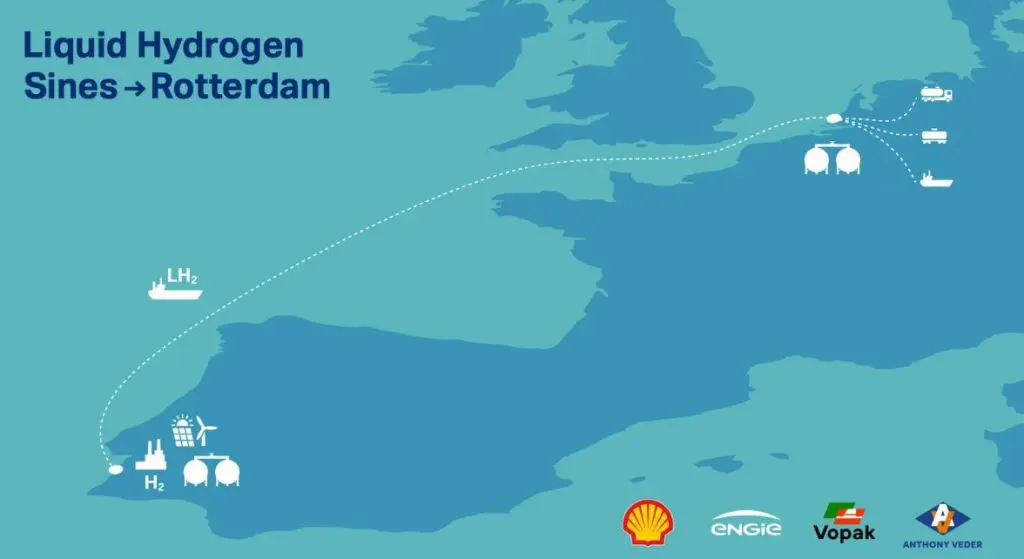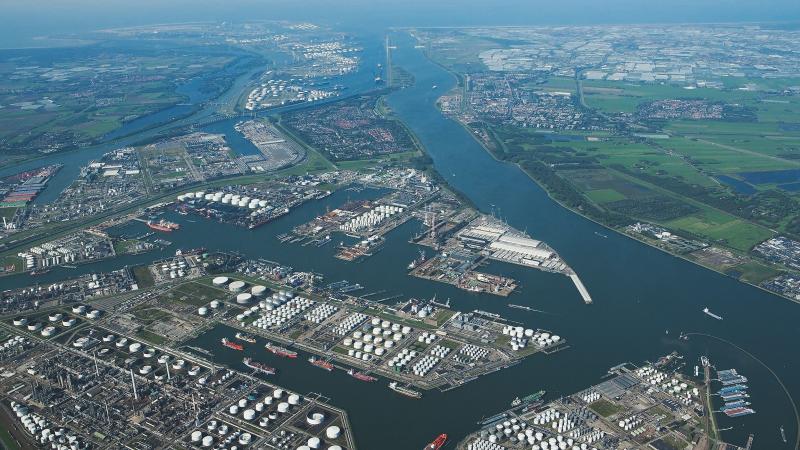A unit of LNG giant Shell and partners plan to start delivering liquid hydrogen from Portugal’s Sines to the Dutch Rotterdam port by 2027.
The other partners include Dutch tank firm and LNG terminal operator Vopak, gas and LNG shipping firm Anthony Veder, as well as French energy company Engie.
According to a joint statement issued on Monday, the partners signed an agreement to study the feasibility of producing, liquefying, and transporting green hydrogen from Portugal to the Netherlands.
Also, this feasibility study follows the signing of a memorandum of understanding in 2020.
The consortium plans to produce hydrogen by electrolysis from renewable power in the industrial zone of the Sines port.
Following liquefaction, the partners aim to ship the fuel via liquid hydrogen carriers to the port of Rotterdam for distribution and sale, the statement said.
“The aim is to deliver a first shipment of liquid hydrogen from Sines to Rotterdam by 2027,” they said.

100 tonnes per day
Within the consortium, Shell and Engie will collaborate across the full value chain and Anthony Veder and Vopak involvement will focus on shipping, storage, and distribution.
The partners would initially assess the potential of producing, transporting, and storing around 100 tonnes per day, with potential to scale this up over time, the statement said.
Accordin to the statement, key sector players in heavy duty, marine and aviation support this development as it “fits well with their intention to decarbonize operations”.
“We consider liquid hydrogen as a key solution to import renewable energy into markets such as the Netherlands or Germany. We are developing the next generation of trucks which can use liquid hydrogen directly,” Andreas Gorbach, head of truck technology and member of the board of management Daimler Truck, said in the statement.
Worth mentioning here, Shell has recently taken a final investment decision to build what it says is Europe’s largest renewable or green hydrogen plant in the port of Rotterdam.
The plant will produce up to 60,000 kilograms of hydrogen per day.

